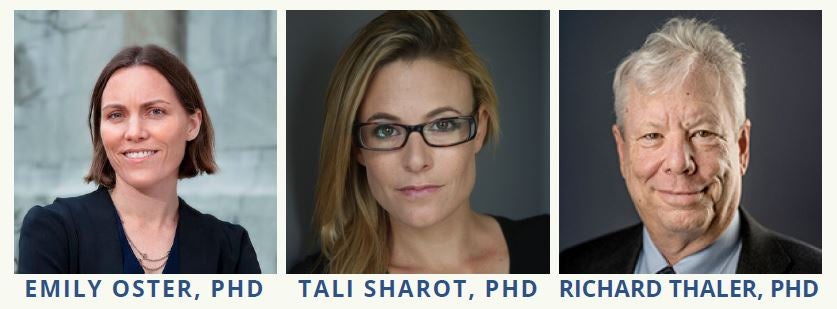CHIBE Hosts 2020 Behavioral Science & Health Symposium

Healthy eating, CEO aging and death, handwashing habits, and behavioral responses to COVID-19 testing were just a few of the varied topics discussed at the 10th annual Behavioral Science and Health Symposium held virtually this year December 3-4, 2020.
Each year, the University of Pennsylvania’s Center for Health Incentives & Behavioral Economics (CHIBE) symposium brings together top researchers and clinicians from around the country and the globe to discuss their latest research, develop new collaborations, and exchange ideas. This year’s event featured two keynote presentations:
- Emily Oster, PhD, Professor of Economics at Brown University, spoke with us about selection and the limits of observational data related to vitamins and breastfeeding.
- Tali Sharot, PhD, Professor of Cognitive Neuroscience in the Department of Experimental Psychology, University College London, and Director of the Affective Brain Lab, spoke with us about what people want to know in health and disease.
The symposium also consisted of 14 research presentations (see topics here) and break-out discussions for attendees. Our event concluded with a thought leader interview with Richard Thaler, PhD, the Charles R. Walgreen Distinguished Service Professor of Behavioral Science and Economics at the Chicago Booth School of Business. Read selected highlights from the interview (which was open to the public) here, or you can watch a recording of the interview with Dr. Thaler here to see the full conversation.
CHIBE offers its profound gratitude to the symposium steering committee members: Alison Buttenheim, PhD, MBA, Katy Milkman, PhD; and Kevin Volpp, MD, PhD (University of Pennsylvania); Gretchen Chapman, PhD (Carnegie Mellon University); Ayelet Fishbach, PhD (University of Chicago); and Justin Sydnor, PhD (University of Wisconsin-Madison), as well as Joelle Friedman, MA, and Samantha Fellman for their planning efforts.